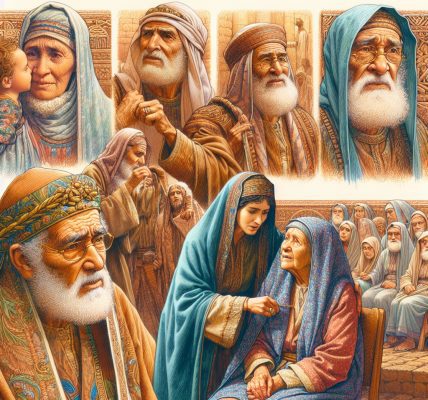**The Legacy of King Ahasuerus and Mordecai the Jew**
In the grandeur of the Persian Empire, where the sun blazed over marble palaces and the scent of spices filled the air, King Ahasuerus reigned with unmatched splendor. His dominion stretched from India to Ethiopia, encompassing a hundred and twenty-seven provinces, each yielding to his authority. The wealth of the empire flowed like rivers, and the king’s court shimmered with gold and jewels, a testament to his power.
But beyond the king’s majesty, another name was whispered in the streets, inscribed in the royal chronicles, and revered among the people—**Mordecai the Jew**. Once a humble scribe sitting at the king’s gate, Mordecai had risen to become second only to the king himself. Clothed in royal robes and bearing the king’s signet ring, he walked the palace corridors with dignity, his wisdom guiding the empire’s affairs.
The people of Persia marveled at his ascent. Many remembered how he had once saved the king from an assassination plot, an act of loyalty recorded in the annals of the kingdom. Others spoke of how he had stood firm against the wicked Haman, who sought to destroy the Jews. Through divine providence and the courage of Queen Esther, Haman’s schemes had crumbled, and the Jews had been delivered from destruction. Now, Mordecai’s name was synonymous with justice and righteousness.
In the markets of Susa, merchants and travelers shared tales of his deeds. “Have you heard?” one would say, “Mordecai the Jew governs with fairness. No bribe sways him, no flattery blinds him.” Another would add, “He remembers his people, interceding for them before the king. The Jews dwell in safety under his watch.”
The king himself held Mordecai in high esteem. Often, they would sit in the royal gardens, discussing matters of state. Ahasuerus valued his counsel, for Mordecai spoke not out of selfish ambition but with a heart attuned to wisdom. “You have been a faithful servant,” the king once declared, “and your God has surely blessed you.”
Mordecai, though exalted, remained humble. Each morning, before donning his royal garments, he would bow in prayer, giving thanks to the God of Israel. He knew his rise was not by his own strength but by the hand of the Almighty, who lifts the lowly and humbles the proud.
As the years passed, Mordecai’s influence spread peace throughout the empire. The Jews, once threatened with annihilation, now lived securely, their children playing freely in the streets. Every year, they celebrated the Feast of Purim, remembering how their sorrow had turned to joy, their mourning into dancing.
And so, the chronicles of King Ahasuerus recorded not only the king’s might but also the greatness of Mordecai—how he sought the welfare of his people and spoke peace to all his kindred. His legacy endured, a shining testament to God’s faithfulness, proving that even in a foreign land, the righteous flourish like a tree planted by streams of water.
Thus, the story of Esther and Mordecai echoed through generations, a reminder that the Lord watches over His own, turning the schemes of the wicked to dust and exalting those who trust in Him.




